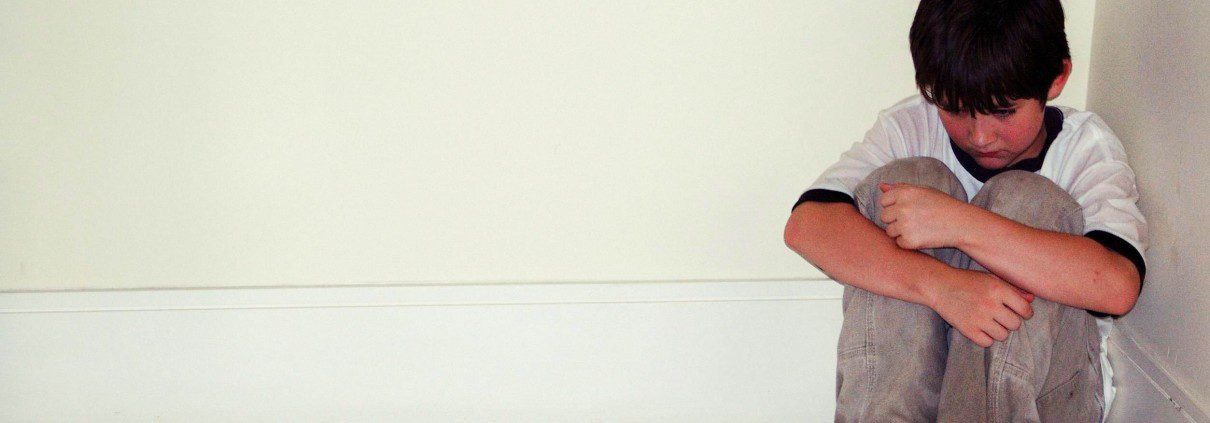The Memoirs of a Bullied Kid
By Lau Jue Hua, Singapore
If you’re being bullied, I would like to say that I could understand your pain to some degree. But I would also like to apologize on behalf of those who tormented you. You see, I was both a bully and a victim. An awkward kid while growing up—I was overweight, bespectacled and never really seemed to fit in—that made me a prime target for bullies. Little did I realize, at that time, that being bullied would make me unconsciously pawn off my negative emotions by picking on others.
This article is not about me whining about my experiences, but to share with you that I, who have been through both spectrums, understand what you are going through and to also share with you how I coped with the pain of being bullied. In addition to these coping mechanisms, I have added explanations using my Christian faith and suggested other ways (which I did not know at that time) to deal with this problem.
One of the ways I dealt with being bullied was to physically torment someone else. I am ashamed of my actions, so much so that when I saw my victim eleven years later, I turned tail and ran. The reason why I still recognized him despite not seeing him for a little over a decade was the fact that he had a shriveled hand and walked with a limp. Yes, I beat up someone who was afflicted with cerebral palsy and left him crying in the rain.
If you are a victim of bullying and you are getting angry at my actions—that I am a heartless individual that likes to pick on the weak—I urge you to not close this tab in your web browser and to stay with me for a few more moments. While I’m not defending my actions, I would like to put them into context. I was being bullied too. I was beaten up and ostracized. And the way I coped with it was to redirect “the focus” onto someone else. It is a defense mechanism. One that I still use even today.
By laughing and hurling insults at the negative points of others, I felt that I could fit in and finally be part of a group. By mocking and belittling a crippled kid, I could—for a brief moment—look past my being overweight and other troubles, and that I finally felt powerful over someone else.
I thought I could break free from the bullies by graduating, but little did I know that those same bullies who made fun of me would end up in the same class when I was fifteen and sixteen.
The bullying changed here—less of a physical nature and more of a mental one. It was depressing that they ostracized me and ignored my presence. I tried to fit in by making fun of others. Sure enough, it got me some laughs and pats on the back, but it did not solve any problems.
With almost close to having no friends, I turned to games—to distract myself from the fact that I hated going to school. I made stupid decisions, and if I could turn back time, I would have lived my childhood years a different way.
Well, I hope that put things quite into context. Here are some of the ways to deal with bullying that I promised you.
1) Read and play
Books were a source of light for me. At that time, I had yet to know Christ and would never even come close to opening a Bible because of my Buddhism upbringing. If I were a Christian then, I would probably have read my Bible (oh, those wasted years). However, I cannot explain in words how much the works of Enid Blyton, Roald Dahl, and C. S. Lewis helped carry me through dark days and even darker nights.
Computer games, while a good way to pass time and make online friends, should be used in moderation. I do not recommend overindulging yourself, as the chances of becoming addicted to a computer game is higher than losing yourself in a good book because of its immersive and interactive nature.
2) Stop trying to fit in
This may not apply to some of you who are reading this, but I would like to just say it: Stop trying to fit in. I tried to fit in by bullying others, by joining in the “fun”. We (or at least I am) are so insecure that we would do anything to get that feeling of security from fitting in—that camaraderie, that sense of acceptance by others. It is more fun than being alone. Whether it is herd instinct or a natural desire to feel appreciated, we should not do evil just because we want to be appreciated by others. We should be more concerned with aligning ourselves with God instead of men. “Do not conform to the pattern of this world, but be transformed by the renewing of your mind”(Romans 12:2 NIV).
3) Meekness
You’ve probably heard of turning the other cheek when someone slaps you on the right cheek (Luke 6:9; Matthew 5:39). These verses are not about letting someone step all over you; it is more about losing your rights to follow Jesus, as shown in Mark 8:34-35, “If anyone would come after me he must deny himself and take up his cross and follow me. For whoever wants to save his life will lose it, but whoever loses his life for me and for the Gospel will save it.”
David Roper, a pastor, once wrote: “Meekness is not weakness, but strength in control. It is a gentle, yielding spirit that meets hard hearts and stubborn wills with quiet forbearance.” Meekness is one of the qualities of Jesus—and it is this quality that sets Him apart from the rest of us. With an army of angels behind Him, He could do anything. However, instead of lashing out at the Pharisees who hounded and ridiculed Him, He chose to be meek, to be gentle, to control His strength. We should not confuse meekness with weakness.
4) Stand up for yourself and for the truth
This point may seem contradictory to the earlier one, but let me explain. Jesus did not turn His other cheek to the officer when He was struck for not answering the high priest in the “proper manner”(John 18:19-23). Instead, He asked the officer, “If what I said is wrong, bear witness about the wrong; but if what I said is right, why do you strike me?” We learn from Him that we could firmly, yet meekly, correct those who treat us unjustly.
5) Talk to someone of authority
Standing up for ourselves and for the truth does not mean we should fight back. Remember, Jesus did not come to blows or insult the Pharisees. He kept His strength under control, defending Himself while not hurting the other person. For those being bullied, you should redirect your troubles to someone of authority.
In Romans 13:3-4, Paul tells us that authorities are appointed by God for the “very purpose of punishing those who do what is wrong” (v.4 NLT).
6) Love and pray
The reason I left this point to the last is that it is the most commonly given advice from Christian to Christian, so much so that the meaning is lost due to its over usage. There’s also a reason that love and pray are one point and not two.
Jesus said, “Love your enemies and do good to those who hate you” (Luke 6:27). It’s hard enough that we have to be meek, control our strength despite being put down, but to love our enemies? That sounds impossible! But I hope that as you read my experiences above, you have come to understand that bullies are not what they seem. They are not as heartless—or even sadistic— as we think they are. But they have adopted the wrong coping mechanism for their hurts. And unlike you or me who has Christ to guide us, they may not know Christ, or if they do, they may not have a deep relationship with Him! Love them, because like you, they are hurt too. Love your enemies by praying for them (Matthew 5:44) and see how God will work!










Amen!!! God Bless
Thank you for writing this….. I felt guilty for my classmates whom I bullied too, at the same time happy because now I know what to do when someone bullies me. Ughhh!!! I feel like crying now…. By the way thank you very much for writing some ways to deal with bullying, your promise is really true!